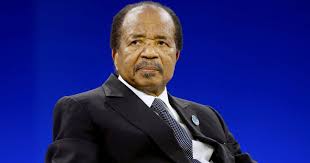Doha, Qatar – Just hours after the Democratic Republic of Congo (DRC) and M23 rebels endorsed a peace declaration in Doha, Qatar, sharp disagreements have surfaced—casting doubt on whether the deal will bring lasting peace or become yet another failed attempt to end the conflict in eastern Congo.
Rwanda’s Ministry of Foreign Affairs welcomed the Doha Declaration, calling it “a significant step forward” for regional peace and security. Rwanda praised the role of Qatar and the United States in building on a previous June 27 agreement between Kigali and Kinshasa.
The UN peacekeeping mission in DRC, MONUSCO, also endorsed the declaration and pledged support to verify compliance and monitor the fragile ceasefire.
But within hours, the cracks began to show the Doha Declaration lays out a roadmap for peace between the DRC government and the M23 rebel group, which currently controls large parts of the North Kivu region—including the strategic city of Goma.
“The Parties recognize that the complete restoration of state authority on all national territories constitutes a key component for the peace agreement, which will include the modalities and process of such restoration.”
This vague wording has become the source of major disagreement, the DRC government claims the deal confirms that M23 must unconditionally withdraw from all territories it occupies. Government spokesperson Patrick Muyaya said the declaration upholds Congo’s “red lines,” including no negotiation over territory.
However, M23, through its spokesperson Lawrence Kanyuka, strongly disagreed. He said the group never agreed to an immediate withdrawal.
“Nowhere was it requested that the AFC/M23 withdraw from the liberated zones,” Kanyuka said, accusing Kinshasa of deliberately misrepresenting the agreement.
According to M23, the phrase “restoration of state authority” suggests that further political negotiations are required—not a military exit.
Why It Matters
M23 rebels have built a de facto government in areas they control. They collect taxes, enforce local security, and are reportedly earning over $1 million monthly from the illegal mining of minerals.
The group claims they bring order where the central government had long failed.
This complex reality makes Kinshasa’s demand for immediate rebel withdrawal difficult to enforce without risking a return to open conflict.
The declaration calls for comprehensive peace talks within 10 days, with the aim of signing a binding final agreement one week later. But with both sides already disputing the meaning of what they just signed, many fear the process may collapse before it begins.
MONUSCO, though supportive, has a shrinking presence in eastern DRC and limited influence on heavily armed actors. Without trust and commitment from both Kinshasa and M23, enforcement will be difficult.
Regional and International Stakes
The DRC-Rwanda tensions have had broader regional implications, with accusations of Rwandan support for M23 and cross-border skirmishes. The U.S., African Union, and East African Community are all watching closely, hoping that this new effort does not repeat the mistakes of past peace attempts.
What’s Next?
Whether the Doha Declaration leads to genuine peace or becomes another shelved accord will depend on what happens in the next two weeks. Can Kinshasa and M23 agree on a path forward that includes both political dialogue and disarmament?
With both sides holding firm and the region on edge, the road to peace remains long—and fragile.
What’s your take? Do you think the Doha deal stands a chance? Send us your thoughts at [your outlet’s contact].



